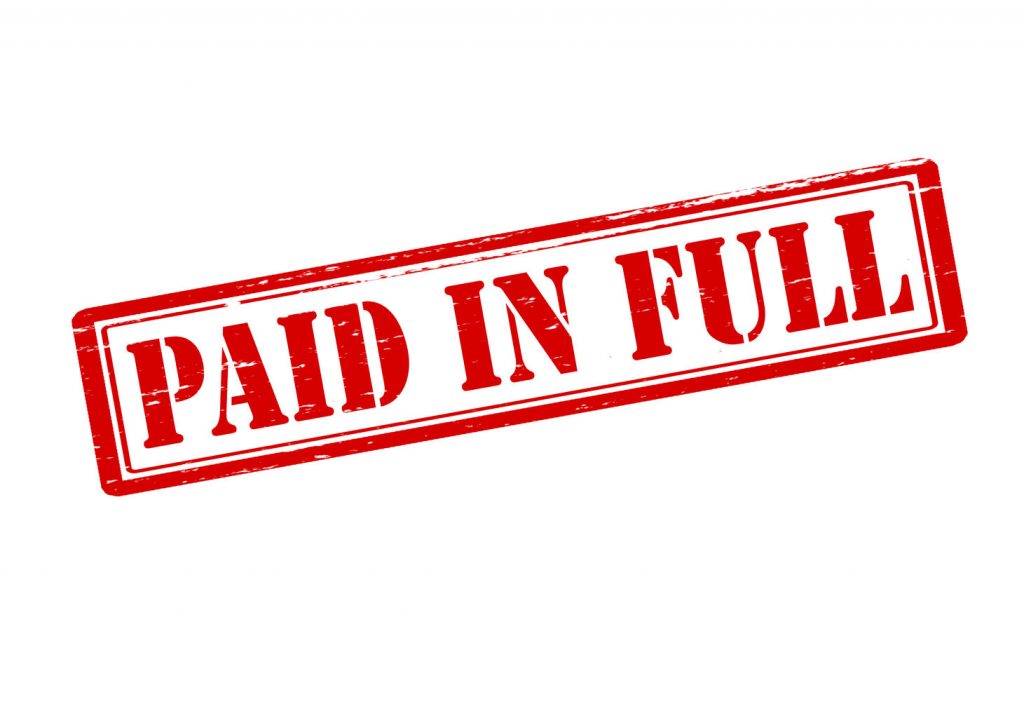Have you ever been so hurt by another that, try as you might, you just can’t seem to truly forgive and let it go? I know I have—and I was a pastor for 35 years!
The sad reality is often our inability to forgive punishes us more than the one who wronged us. In fact, the other person may not even be aware of it!
You probably understand this and would rather forgive instead of living as a victim. And it’s always better when we can work things out with another, make apologies, and make the wrong right.
But what do you do when the other won’t—or can’t—make things right?
Wrongs Demand Righted. Debts Demand Payment.
I recently heard a speaker discuss this subject in a way I’ve never heard. It was at a Christian event so spoiler alert: this will be from a Biblical perspective. Even if you aren’t a person of faith currently, don’t check out yet—I think you’ll find this helpful.
The speaker explained that once wronged, we treat it as a debt that must be repaid. We demand retribution, payment, in some way to satisfy the offense. Yet sometimes the offender isn’t aware of the offense, or wouldn’t be able to completely undo the words or action even if he wanted to.
This is certainly relevant when you have been hurt deeply by someone you’ve trusted. And it’s even more devastating in cases of long term abuse.
You want to let it go, to forget it and move on. Yet you continue to find the memory of the offense creeping back. You may even find yourself venting deep-seated anger in other unrelated situations. It’s tormenting and seems to be beyond human ability to truly get out from under this unforgiveness.
A Different Approach
Most of us have tried to muscle through forgiveness. Will power. Telling ourselves to simply forget it. Move on. Sometimes we can. Sometimes we can’t.
The speaker concluded his talk with an exercise—some guided imagery. He asked all of us to think of someone we might not have been able to forgive. I hate to admit it but realized I had a someone. You may have a someone. If so, I invite you to do this now also.
He instructed us to close our eyes and imagine the location where the offense occurred. Replay the video in your head. See the person. Hear the hurtful words spoken or see the action. Remember the hurt, the flood of emotions.
Now imagine demanding payment from the offender. What do you need? What do you want? What will right this wrong? You soon realize that the person probably doesn’t have the ability to fully pay the debt—to completely undo the hurt.
While face to face with your offender, imagine a tap on your shoulder. You turn around and are stunned to see Jesus standing beside you. Even if you aren’t a Christian now, feel this.
You can tell Jesus fully gets your hurt and sees your quandary. You deserve payment but it can’t be paid by your offender.
So He makes an offer. “Will you be willing to accept my sacrifice as payment for his debt?”
Oh, man. I only barely remember what happened to me next. What am I going to do with that? All of a sudden, the unforgivable just became so trivial. Of course I would accept that payment!
I mean this is the reason I became a Christ-follower to begin with. I realized how bad my own deeds and words had been toward others and God. And worse, I knew I could never make it completely right. When I heard that God would forgive me if I would accept Jesus’ innocent death on the cross as payment in full for me, how could I turn that down?
All my life as a Christian, I’ve known and been relieved by the fact that God has forgiven me because of what Jesus offered as payment for me. I’ve taught others they could experience the same forgiveness. I’d just never considered His sacrifice as payment for others’ wrongs toward me.
The Ultimate Solution
In that moment of imagining Jesus offering to pay for what another did, I was able to forgive. Paid in full. God had forgiven me. How could I not accept the same payment for another’s wrong to me? It was one of the most supernatural experiences of my life.
I don’t know exactly what another may have done or said to you. And there’s a chance it’s heartbreaking—possibly humanly unforgivable. And you’re the one still suffering. It’s not fair.
The only way free is for you to be compensated. Will you be able to accept what another might offer as payment in full? I hope you will. There is nothing more liberating than to stamp “Paid in Full” on a debt owed you.
If you’re not a person of faith, and this idea sounds appealing to you but you’re having a hard time getting your head around it, feel free to email me. I’ll be happy to help any way I can.
Question: If you haven't been able to fully forgive someone, how long will you allow that to hang over you? If you don't like this solution that I experienced, what will be yours? Share your answer in the comments below.
